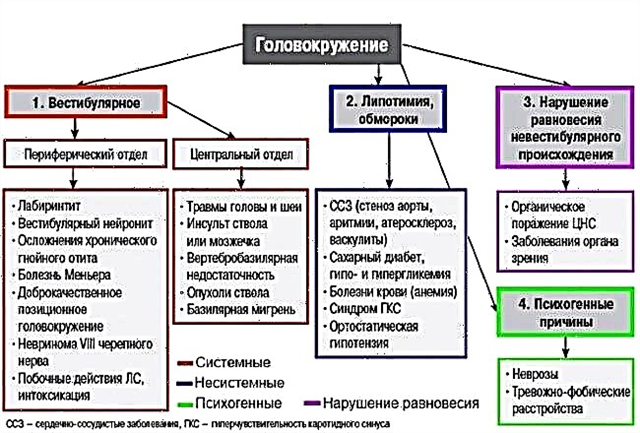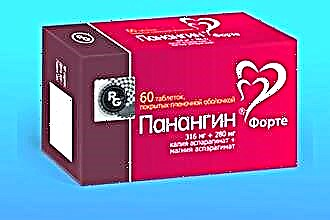 Complaints about tickling and coughing occur constantly or intermittently.
Complaints about tickling and coughing occur constantly or intermittently.
In all these situations, the patient cannot be left without treatment, since his condition can progressively worsen, there is a risk of complications.
If it tickles in your throat, it is important to know which specialist you should contact, what actions you can take yourself at home.
Algorithm of actions
The feelings that the patient experiences are expressed in complaints about the state of health. When the throat and cough tickles, how to treat it in order to permanently part with unpleasant symptoms? It must be understood that each disease has its causes, and treatment should not only consist in correcting the manifestations with the help of medicines and procedures, but also in eliminating the etiological factor, which acted as a provocateur in the development of the pathological process.
What to do if itching and coughing worries? When the symptoms do not go away on their own immediately, it is worth acting based on the following algorithm:
- Clarification of the diagnosis. The first step should be to determine the etiology and mechanisms of the development of the disease. Once the diagnosis is known, treatment can begin. The diagnosis should be carried out by a doctor who will carefully study all the signs of the disease and will be able to choose the most appropriate therapy.
- Refusal of self-medication. It is better to agree on treatment with your doctor. Folk and home remedies can be useful if they complement the basic scheme prescribed by a specialist. Sometimes the independent choice of therapy leads to a distortion of the clinical picture and complicates the diagnosis.
- Prevention of complications. If the development of a pathological condition is associated with provoking factors of the external environment (dust, food-allergens, etc.), you need to stop contact with them. The improvement and disappearance of symptoms in this case can serve as a reference criterion for diagnosis.
Tickling in the throat is a symptom that cannot be eliminated with a "universal medicine" without knowing the etiology. All pharmacological preparations have contraindications, and in the case of allergies, preventive measures are the best solution. However, before considering a probable diagnosis, you should make sure that itching and coughing are not the result of dry mucous membranes. Drying signs are:
- moderate sore throat that subsides after walking in the fresh air, drinking fluids;
- feeling of perspiration, irritation, itching, which forces the patient to cough from time to time;
- dry, obsessive cough without profuse expectoration.
Drying of the throat occurs with an unsatisfactory microclimate of the room or an inflammatory process.
Dryness of the mucous membrane of the oropharynx and larynx provokes dry, hot air, lack of ventilation, forced mouth breathing (rhinitis, sinusitis, snoring). It is important to understand in time why it tickles in the throat. Drying out is not yet a disease, but with prolonged exposure to causative factors, favorable conditions are created for the onset of inflammation.
How to choose a doctor
Medical specialties involve a division into general practitioners and "narrow" specialists. There are also clinicians who are directly involved in examining the patient, prescribing and monitoring treatment, and diagnostic doctors, whose task is to use a range of diagnostic techniques to clarify the nature of the pathological process. In addition, there are also "children's" and "adult" specialties.
Sometimes a patient hesitates to contact a medical institution simply because he does not know which doctor can help him. However, much depends on the structure and human resources of the polyclinic or hospital. Initial consultation can be provided by a general practitioner who accepts patients of all age groups, as well as a therapist (adults), pediatrician (children). These specialists give recommendations immediately or refer to a doctor of a different profile, based on the indications identified.
Depending on the cause that causes the cough and itching in the throat, the patient is consulted by different specialists:
- Allergic pharyngitis, laryngitis - therapist, pediatrician, general practitioner, otolaryngologist, allergist.
- Bronchial asthma - general practitioner, therapist, pediatrician, allergist, pulmonologist.
- The initial period of ARVI - general practitioner, therapist, pediatrician.
- Sensory dysfunction of the larynx - general practitioner, therapist, pediatrician, otolaryngologist, neurologist.
The attending physician assesses the condition, prescribes diagnostic tests, selects procedures and drugs, and monitors the treatment process. If the patient lives in a rural area, he can also contact the feldsher-obstetric center (FAP), the specialist-feldsher in which will determine the need for first aid and consultation with a doctor in the hospital.
How to treat
Situations in which the throat itches and you want to cough can be roughly divided into three main types:
 those in which it is possible to eliminate symptoms on their own;
those in which it is possible to eliminate symptoms on their own;- those in which long-term treatment is required under the supervision of a physician;
- those in which both emergency specialist care and follow-up therapy are needed.
In the first case, we are talking about a one-time or many hours of exposure to the mucous membrane of the pharynx and larynx of irritating factors - for example, dry air, tobacco smoke, crumbling food, hot spices.
Medicines are not required - if the patient has not yet developed an inflammatory process, it is enough to stop contact with the irritant, and improvement will soon come. Need to:
- Take a few sips of water, tea, compote.
- Stop eating crumbly, spicy foods.
- Get out into fresh air, move away from the smoker.
- Turn on the humidifier, ventilate the room, drink the required amount of water.
Usually, a tickling piece of food is very difficult to cough up when it enters the larynx. It can move quickly, provoke respiratory distress, in which the patient requires urgent specialist help. You cannot expect food leftovers to cough up on their own, since the risk of developing life-threatening disorders is very high.
Even a strong cough does not guarantee improvement. The sooner the patient is examined by a doctor, the more likely a positive outcome is to get rid of painful symptoms.
If the symptoms are explained by sensory dysfunction of the larynx, it is necessary to find out the reason for its development - the presence of inflammation, neoplasms, etc. In this pathological condition, a person begins to overreact to habitual stimuli. After inhaling cold or dry air, he cannot clear his throat, the mucous membrane itches and tickles. It is best to drink warm water or tea, if symptoms persist or recur, consult a doctor.
Those patients in whom itching and coughing appear as the primary symptoms of ARVI should be treated for the underlying disease. It is important to drink enough liquid, if the body temperature rises, observe bed rest, consult a doctor.Such manifestations are typical for the initial period of viral pharyngitis - just a few hours after the onset, tickling is replaced by pain when swallowing, often radiating to the ears. The cough remains unproductive, very intrusive.
Actions for allergies
Cough and itching caused by contact with an allergen appear when:
- allergic pharyngitis;
- allergic laryngitis.
These symptoms can also occur with allergic rhinitis. You need to take:
- Dissociation with an allergen provocateur (for example, stop eating, rinse your mouth and throat with clean boiled water).
- Taking an antihistamine (Cetirizine, Cetrin, Desloratadine) - it is important to take into account contraindications (for example, early childhood).
- Reception of course therapy (topical glucocorticosteroids, cromones) as prescribed by a doctor.
The best way to treat allergic rhinitis, pharyngitis and laryngitis is not to come into contact with the allergen, but the patient should check with the doctor in charge of what medications can be used if symptoms recur.
If contact with a causal allergen cannot be avoided, ASIT is considered.
ASIT, or allergen-specific immunotherapy, is a method of forming tolerance (reducing the severity of the reaction) to an allergen by introducing it into the body in certain quantities. It has contraindications, it is performed only by an allergist.
If the patient suddenly develops tickling and coughing, but at the same time he also notes difficulty breathing, stop contact with the allergen, take an antihistamine and immediately seek medical help - if the edema grows, injection and inhalation of glucocorticosteroids (Dexamethasone), mucosal irrigation may be required shell with a solution of Epinephrine hydrochloride, which is performed by a specialist.

 those in which it is possible to eliminate symptoms on their own;
those in which it is possible to eliminate symptoms on their own;

